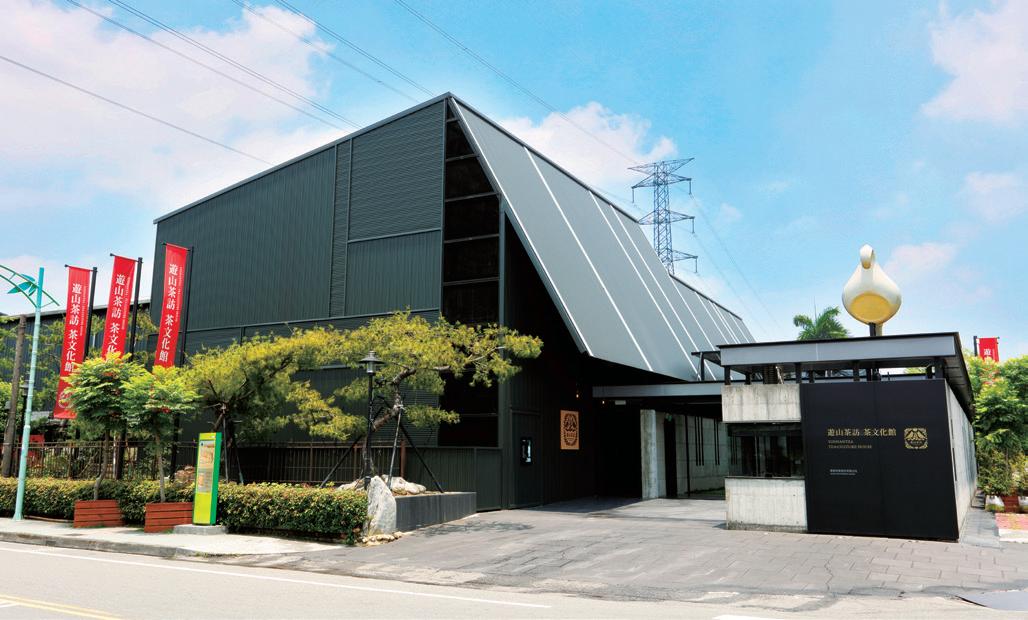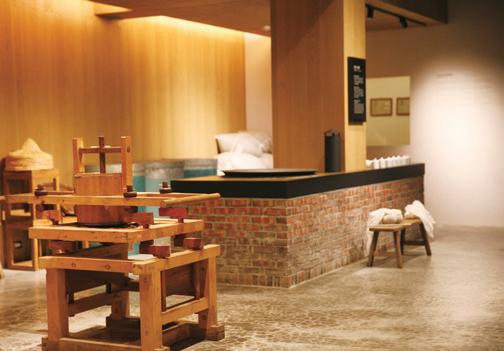
2 minute read
Zhushan Township
This township is in Nantou’s southwest corner. Tea and bamboo are two key crops here – “Zhushan” means “bamboo mountain.” Government authorities began encouraging local farmers to begin planting tea on a larger scale in the late 1970s. The township’s administrative center is the town of Zhushan, a flatlands urban agglomeration right at the base of the central-mountain foothills.
Bagua Tea Plantations
Advertisement
The main driving route to this area is County Route 49, with a switch and short drive along County Route 54 before another switch and short drive along Wuliao Lane. Note that County Route 49 terminates at a Shanlinxi Highway connection (see Sun-Link-Sea section above).
As with the Dalunshan plantations, the tea operations here are spread over a mountaintop like a tiered bush-row carpet (1,000~1300m altitude). The “Bagua” in the name refers to the bagua of Daoist cosmology, an octagonal trigram template with a series of short rows in a circle. In the middle of the concentration of tea fields is a large mounded protuberance on which the tea-bush rows very closely resemble a bagua . Local farm folk say that most visitors believe this was created specifically as an auspicious symbol to attract good fortune, but in fact this pattern was incidentally chosen as the planting pattern most suited to the location’s slopes.
Unlike Dalunshan, where you park at the roadside or in the lot of any specific plantation’s retail center you are visiting, this area has a public parking lot. A stepped pathway just off the lot leads you up through a cherry- tree tunnel, tea rows either side, to the Bagua Echo Pavilion, which has the area’s most panoramic views. There are higher peaks to the north, east, and south – the “big long” view is directly down a deep, narrow valley to the western plains. Twisting, most-often quiet Wuliao Lane also takes you to other area high points.
Directly across the lane from the parking lot is a large combo tea processing/retail facility with outdoor deck seating. Hot meals are served here, such as tea eggs and beef stew/chicken curry with rice.
Yoshan Tea
Located in Zhushan town, this modern-look facility is housed in a once-abandoned factory, now completely transformed. The mission here is to provide visitors with an overview of the development of Taiwanese tea and an understanding of the production process and different types. The proprietor family has been engaged in the cultivation and processing of tea since 1880.
The specific retail-product focus here is Dong Ding Oolong, a celebrated varietal. Yoshan Tea uses traditional hand-plucking in its fields, averring that correct handplucking is essential to achieving a balance of a tea’s aroma and taste.
A variety of experience activities are offered. Each requires online booking through the official website or Facebook page. There is a free one-hour guided tour of the large Tea Culture House facility, providing edification on Taiwan’s tea history, tea culture, types, and processing. Another one-hour experience (fee) provides insight on the principles and differences between roasting and fermentation, and involves DIY tea kneading and roasting (take-home).
YOSHAN TEA
(04) 9264-3919
No. 19, Yanping Rd., Industrial Area, Zhushan Township, Nantou County ( 南投縣竹山鎮工業區延平路 19 號 ) www.yoshantea.com www.facebook.com/yoshantea
A third one-hour experience (fee) is focused on proper tea-tasting methods to judge tea quality, with Taiwanese specialty teas front and center. All sessions are conducted in Chinese.
An extensive range of loose leaf and tea bag selections are available retail. Key are local-area Oolongs from Dong Ding (located in Lugu Township), with many other selections from around the island.









